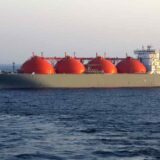The global food supply chain is undergoing a significant transformation, driven by advancements in cold storage technology. As consumer demand for fresh, perishable goods increases and international trade expands, the need for reliable and efficient cold storage solutions has never been more critical. This article explores the key trends, solutions, and strategies in cold storage that are reshaping the global food supply chain.
Key Trends in Cold Storage
Rising Demand for Frozen and Refrigerated Foods : The global demand for frozen and refrigerated foods is on the rise, fueled by changing consumer preferences for convenience and fresh produce. As more consumers seek out ready-to-eat meals, dairy products, fresh fruits, and vegetables, the need for advanced cold storage facilities has increased. This trend is particularly strong in emerging markets where urbanization and higher disposable incomes are driving the growth of the cold chain sector.
Expansion of E-commerce and Online Grocery Shopping : The rapid growth of e-commerce and online grocery shopping has significantly impacted the cold storage industry. Consumers now expect quick and reliable delivery of perishable items, which requires sophisticated cold storage infrastructure. Retailers and logistics providers are investing in temperature-controlled warehouses and distribution centers to meet these demands, ensuring that fresh products reach customers in optimal condition.
Sustainability and Energy Efficiency : As environmental concerns grow, there is increasing pressure on the cold storage industry to adopt sustainable practices. This includes reducing energy consumption, minimizing carbon emissions, and utilizing eco-friendly refrigerants. The industry is responding with innovations such as energy-efficient refrigeration systems, solar-powered facilities, and advanced insulation materials that reduce the environmental impact of cold storage operations.
Automation and IoT Integration : Automation and the Internet of Things (IoT) are transforming cold storage facilities into smart warehouses. IoT devices, such as temperature and humidity sensors, provide real-time monitoring of storage conditions, ensuring that products are kept at the optimal temperature. Automation technologies, including robotic systems for handling and sorting products, enhance efficiency, reduce human error, and lower labor costs.
Globalization and Supply Chain Complexity : The globalization of the food supply chain has increased the complexity of managing perishable goods. Cold storage plays a vital role in ensuring that products maintain their quality and safety as they move through international supply chains. With the expansion of global trade, there is a growing need for standardized cold storage facilities that can handle a diverse range of products across different regions.
Key Solutions in Cold Storage
Advanced Refrigeration Systems : Modern refrigeration systems are at the heart of cold storage facilities. These systems use advanced technologies such as variable frequency drives (VFDs) and cascade refrigeration to maintain precise temperature control while minimizing energy consumption. The use of natural refrigerants, such as ammonia and CO2, is also becoming more common, reducing the environmental impact of refrigeration.
Temperature-Controlled Transportation : Cold storage solutions extend beyond warehouses to include temperature-controlled transportation. Refrigerated trucks, containers, and railcars are essential for maintaining the integrity of perishable goods during transit. Innovations in transportation, such as multi-temperature trailers and real-time tracking systems, ensure that products are delivered in optimal condition.
Cryogenic Freezing : Cryogenic freezing is an advanced cold storage solution used for ultra-low temperature applications. This technology involves the use of liquid nitrogen or carbon dioxide to rapidly freeze products, preserving their quality and extending shelf life. Cryogenic freezing is particularly valuable for high-value products such as seafood, pharmaceuticals, and specialty foods.
Automated Cold Storage Facilities : Automation is revolutionizing cold storage facilities, enabling higher efficiency and accuracy in managing perishable goods. Automated storage and retrieval systems (AS/RS), conveyor systems, and robotic palletizers are increasingly being used to handle products in cold environments. These technologies reduce labor costs, increase throughput, and improve inventory management.
Real-Time Monitoring and Data Analytics : Real-time monitoring and data analytics are critical components of modern cold storage solutions. IoT sensors provide continuous monitoring of temperature, humidity, and other environmental conditions within storage facilities. Data analytics platforms process this information, allowing operators to make data-driven decisions, predict equipment failures, and optimize storage conditions to prevent product spoilage.
Strategies for Implementing Cold Storage Solutions
Invest in Energy-Efficient Technologies: Energy efficiency is a top priority for cold storage operators. Investing in energy-efficient technologies, such as LED lighting, high-efficiency compressors, and advanced insulation, can significantly reduce operating costs. Additionally, exploring renewable energy options, such as solar panels, can further enhance sustainability.
Innovative Services: Shreyas Shipping offers a range of innovative services that enhance the efficiency of coastal shipping. These include containerized cargo movement, seamless multimodal transport solutions, and value-added logistics services.
Optimize Supply Chain Integration : Successful cold storage operations require seamless integration with the broader supply chain. This includes coordinating with suppliers, transportation providers, and distribution centers to ensure that perishable goods are stored and transported under optimal conditions. Leveraging technology, such as cloud-based supply chain management systems, can improve visibility and coordination across the supply chain.
Implement Robust Quality Control Measures : Maintaining the quality and safety of perishable goods is paramount in cold storage operations. Implementing robust quality control measures, such as regular inspections, temperature monitoring, and strict hygiene protocols, ensures that products meet safety standards and customer expectations. Cold storage facilities should also be designed to minimize the risk of contamination and product loss.
Adapt to Regional and Regulatory Requirements : Cold storage operators must navigate a complex landscape of regional and regulatory requirements. This includes complying with food safety standards, environmental regulations, and customs requirements in different markets. Adapting to these requirements requires ongoing monitoring of regulatory changes and the ability to quickly adjust operations to remain compliant.
Leverage Partnerships and Collaboration : Collaboration with industry partners, including technology providers, logistics companies, and food producers, can enhance cold storage operations. Partnerships can provide access to the latest innovations, share best practices, and enable joint investments in infrastructure and technology. Collaborating with stakeholders across the supply chain also helps to build a more resilient and efficient cold storage network.
EXPRESS EAGLES LOGISTICS’ Cold Storage Solutions
As a leading player in the logistics and supply chain industry, Express Eagles Logistics is at the forefront of adopting cutting-edge cold storage solutions to enhance the efficiency and reliability of its global operations. By integrating advanced technologies, such as automated storage systems and real-time monitoring, Express Eagles Logistics ensures that perishable goods are handled with the utmost care and precision, maintaining their quality from origin to destination










